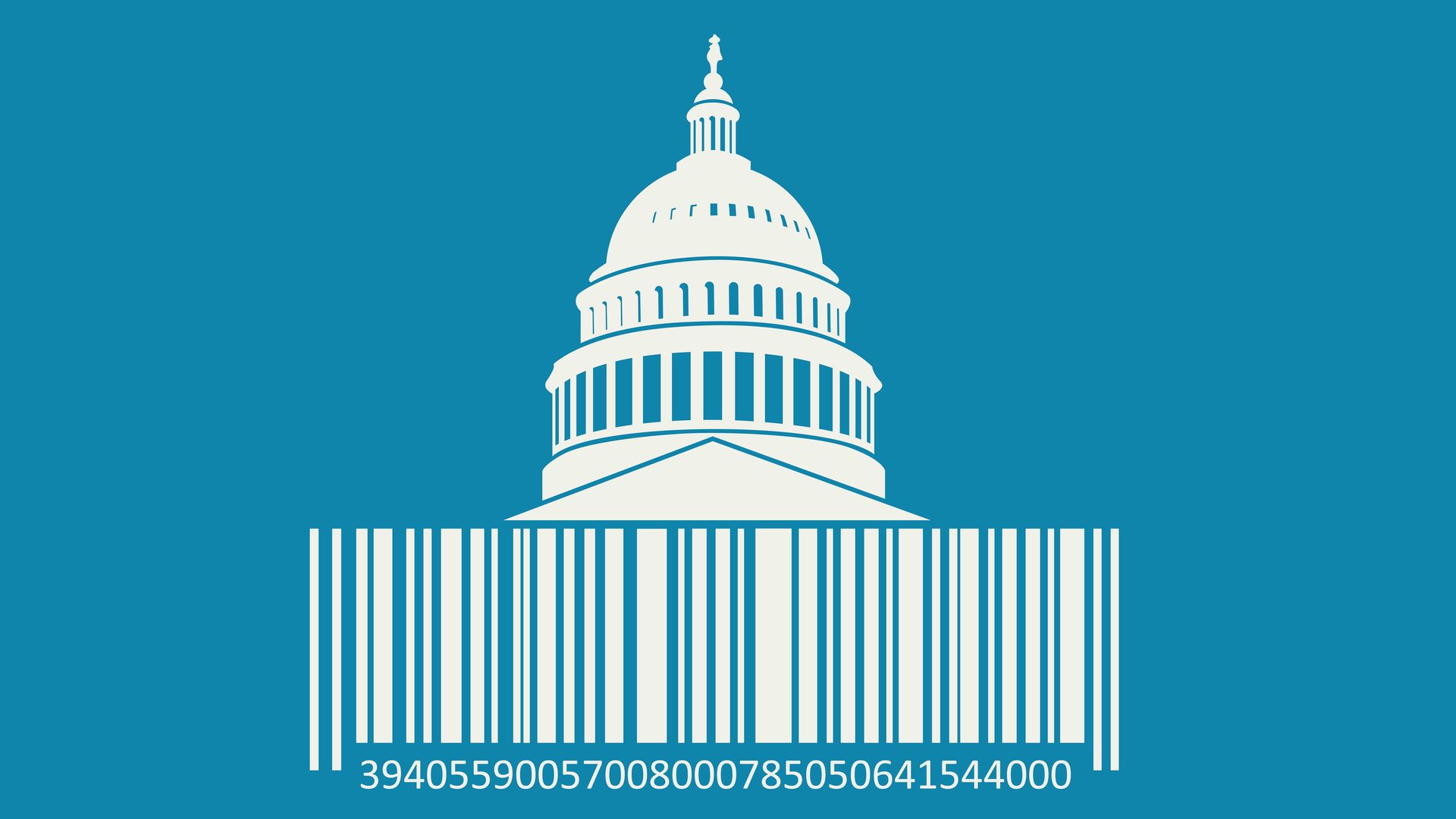Retailers push for new rules stopping online sale of stolen goods
Add Axios as your preferred source to
see more of our stories on Google.

Illustration: Shoshana Gordon/Axios
Retailers are fighting online anonymity to stop stolen goods from being resold on the internet.
Driving the news: CEOs of nearly two dozen retail companies threw their weight today behind legislation aimed at marketplaces like Amazon and eBay in a letter to congressional leaders.
- The INFORM Consumers Act would require online giants to verify sellers and enable buyers to verify sellers and to see contact information.
Why it matters: Organized retail crime has spread as the pace of online shopping reached record levels throughout the pandemic.
- That fever pitch, experts and retailers say, has amplified incentives for reselling stolen goods.
- “It's become a low-risk crime,” says Brian Dodge, president of the Retail Industry Leaders Association.
Catch up quick: Retailers see $45 billion in annual losses, up from $30 billion a decade ago, according to the Coalition of Law Enforcement and Retail, a retail loss prevention and law enforcement trade group.
- Flash mobs have targeted retail chains ranging from CVS, Home Depot and Target to Nordstrom, Burberry and Louis Vuitton.
- Everything from furniture and electronics to beauty products and over-the-counter drugs has shown up on large platforms like Facebook Marketplace, OfferUp and Amazon, according to local reports around the country.
If passed, the INFORM Act could make theft harder, says Dodge.
- Today, those thieves can sell products to unsuspecting customers, he adds, “hiding behind fake usernames and untraceable email addresses rather than legitimate kinds of business information that any other operating business would have to provide — like a name.”
What they’re saying: Amazon has said it supports the House version of the bill, while also saying it opposes legislation that has goals of favoring "large brick-and-mortar retailers at the expense of small businesses that sell online."
- Facebook declined to comment on the bills.
Be smart: Where the House and Senate bills differ — the Senate version would require sellers with high volume to be verified, which could make compliance more difficult.
